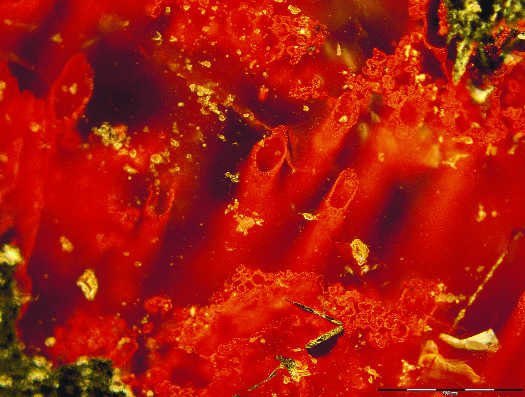Paris, March 1
The oldest fossils ever found are “direct evidence” of life on Earth 3.8 to 4.3 billion years ago, researchers reported today in the journal Nature.
Even at the lower end of the spectrum, “the microfossils we discovered are about 300 million years older” than any runners-up, said Dominic Papineau, a professor at University College London who made the discovery.
The fact that life kick-started not long after Earth formed suggests it could also emerge on watery worlds outside our Solar System at comparable stages of formation, the scientists said. “If life happened so quickly on Earth, then could we expect it to be a simple process that could start on other planets?”, asked lead author Matthew Dodd, a graduate student at the London Centre for Nanotechnology.
Earth and Mars had liquid water on their surfaces at the same time, he noted.
“We could expect to find evidence for past life on Mars four billion years ago,” Dodd said. It may also be true, he added, that Earth was “just a special case”.
The tiny fossils — half the width of a human hair and up to half-a-millimetre in length — take the form of blood-red tubes and filaments formed by ocean-dwelling bacteria that fed on iron. Locked inside white, flower-like quartz structures known to harbour fossils, they were found along what were once warm-water vents on the ocean floor, most often in deep waters.
Such iron-rich, hydrothermal systems exist today, and are home to bacteria that may be similar to those unearthed by Dodd and his colleagues.
Known as the Nuvvuagittuq Supracrustal Belt, the site of the discovery contains some of the oldest sedimentary rocks known on Earth. They formed between 3.77 and 4.29 billion years ago, and may have been the habitat for the planet's first life forms.
It is still not known when, or where, life on Earth began, but these deep-sea vents are seen as a good candidate. Earth is thought to be about 4.57 billion years old. — AFP
Unlock Exclusive Insights with The Tribune Premium
Take your experience further with Premium access.
Thought-provoking Opinions, Expert Analysis, In-depth Insights and other Member Only Benefits
Already a Member? Sign In Now










